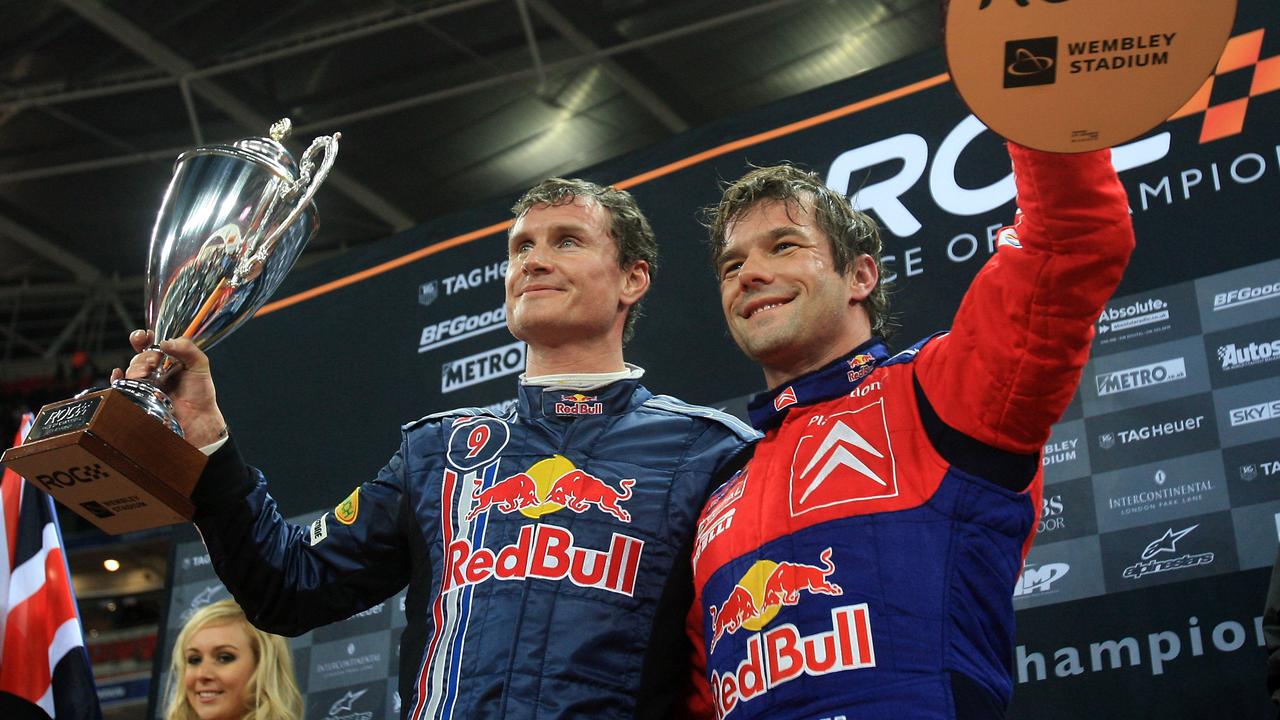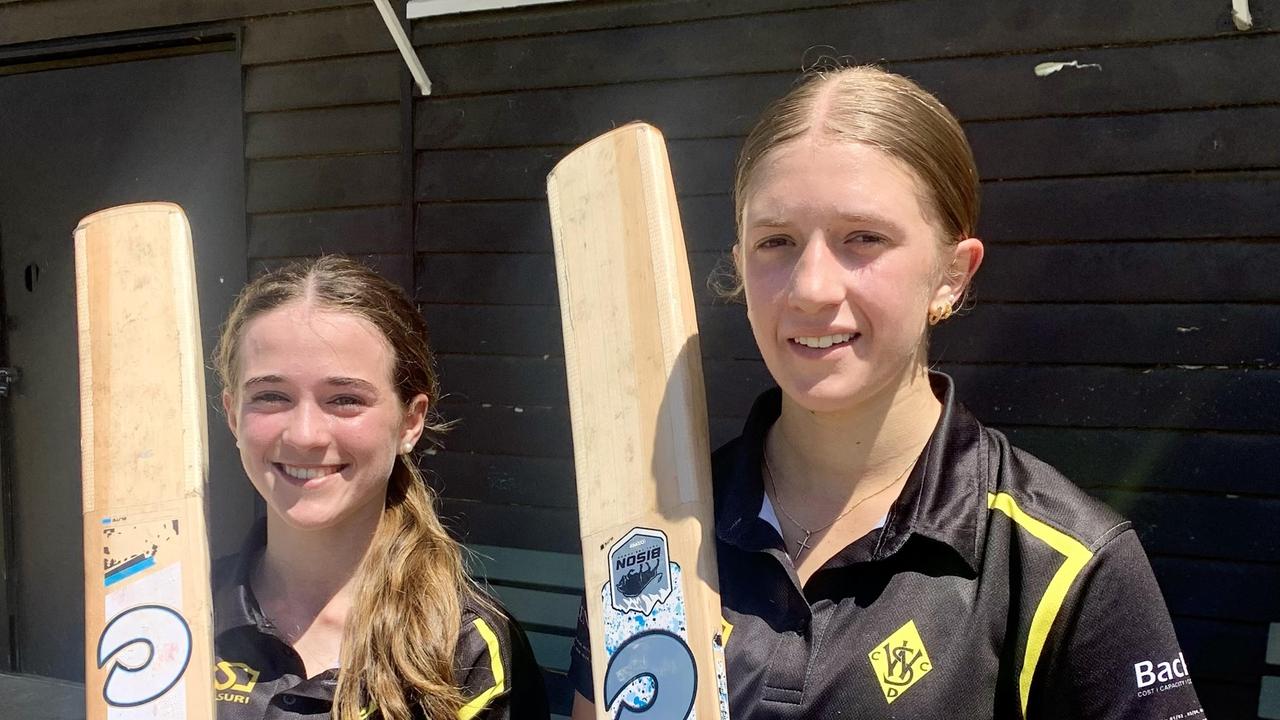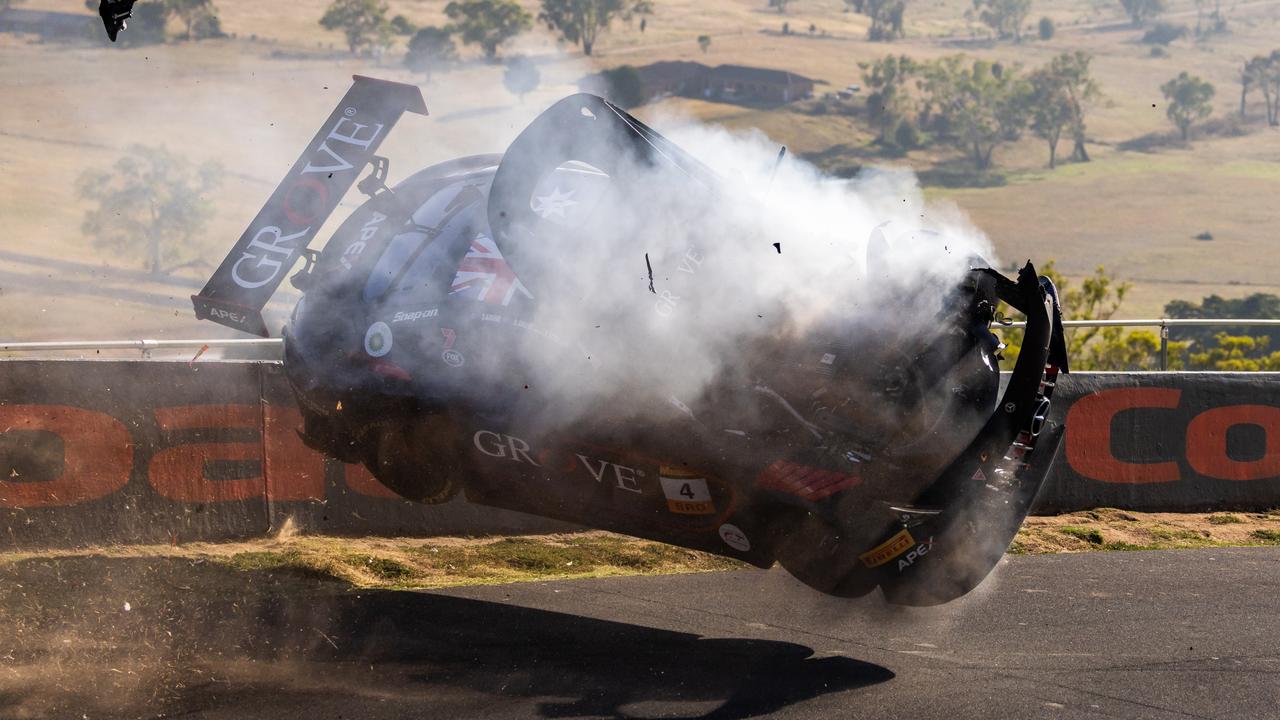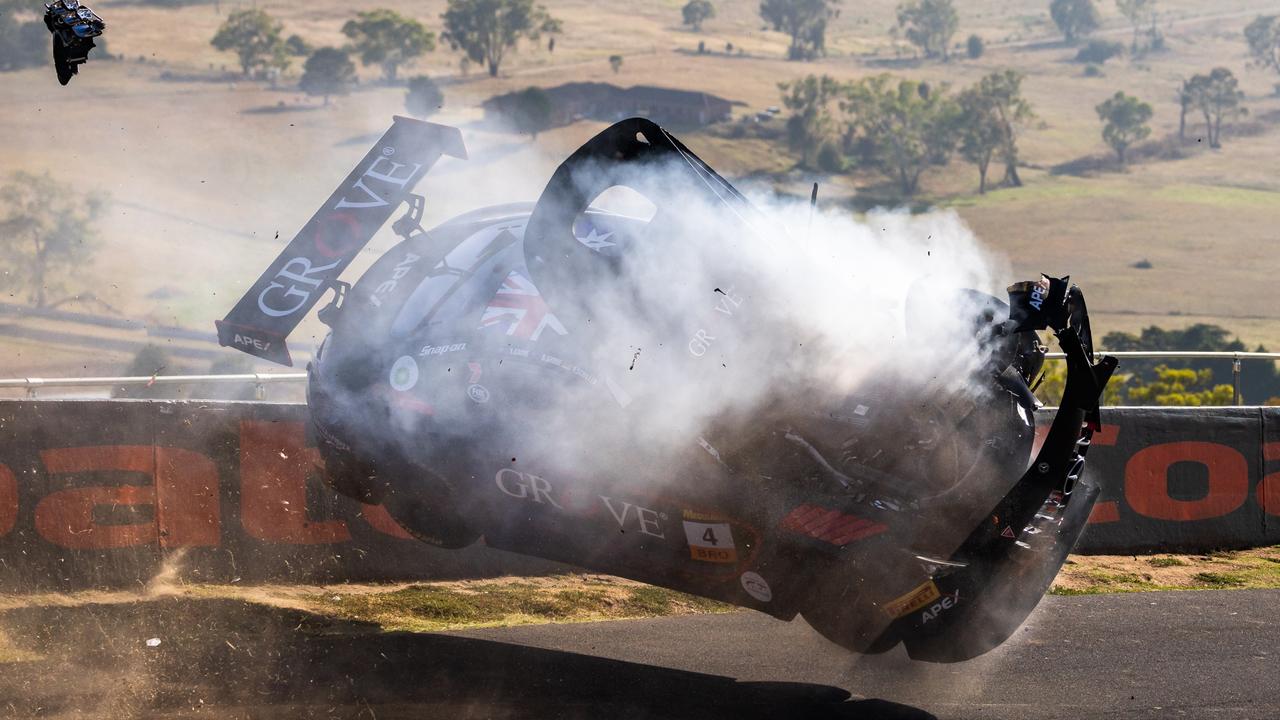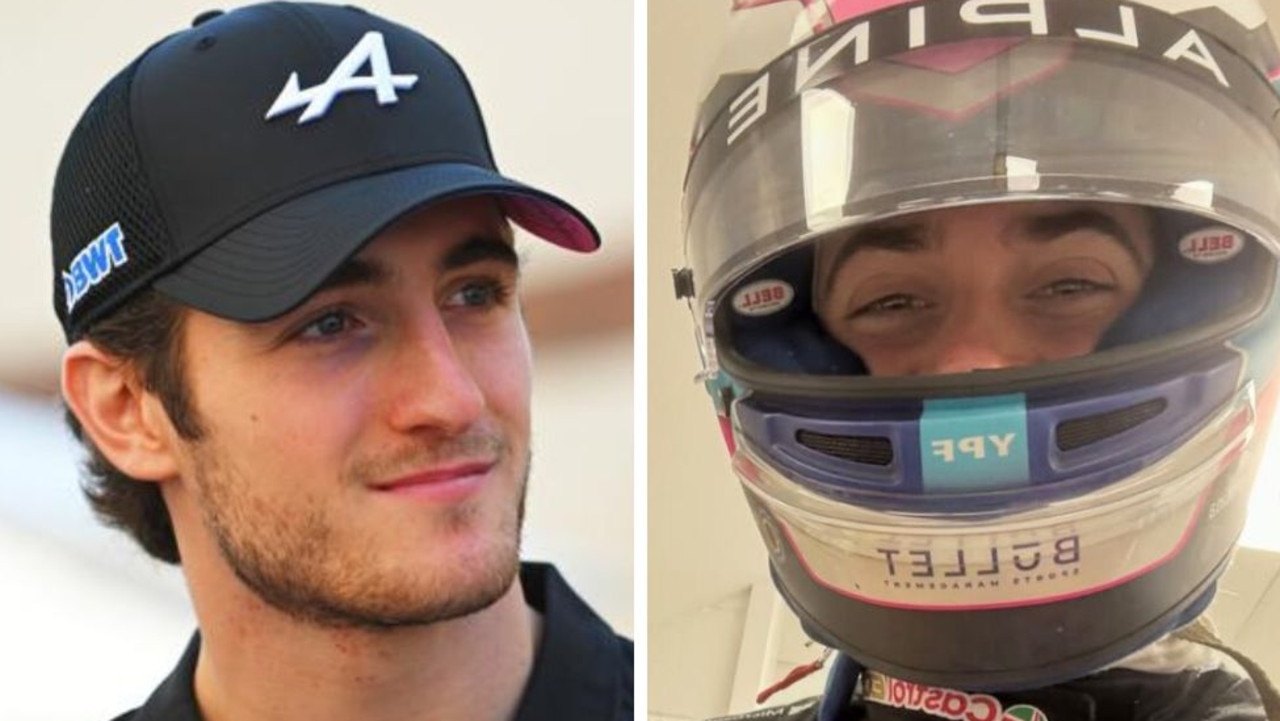Skaife: How to unlock the ‘high speed chess game’ of Bathurst
Strategy is much talked about in motorsport and at an endurance race like the Bathurst 1000 it isn’t just important, it’s “imperative” according to five-time Supercars champion Mark Skaife. This is how to win the ‘high-speed chess game’.
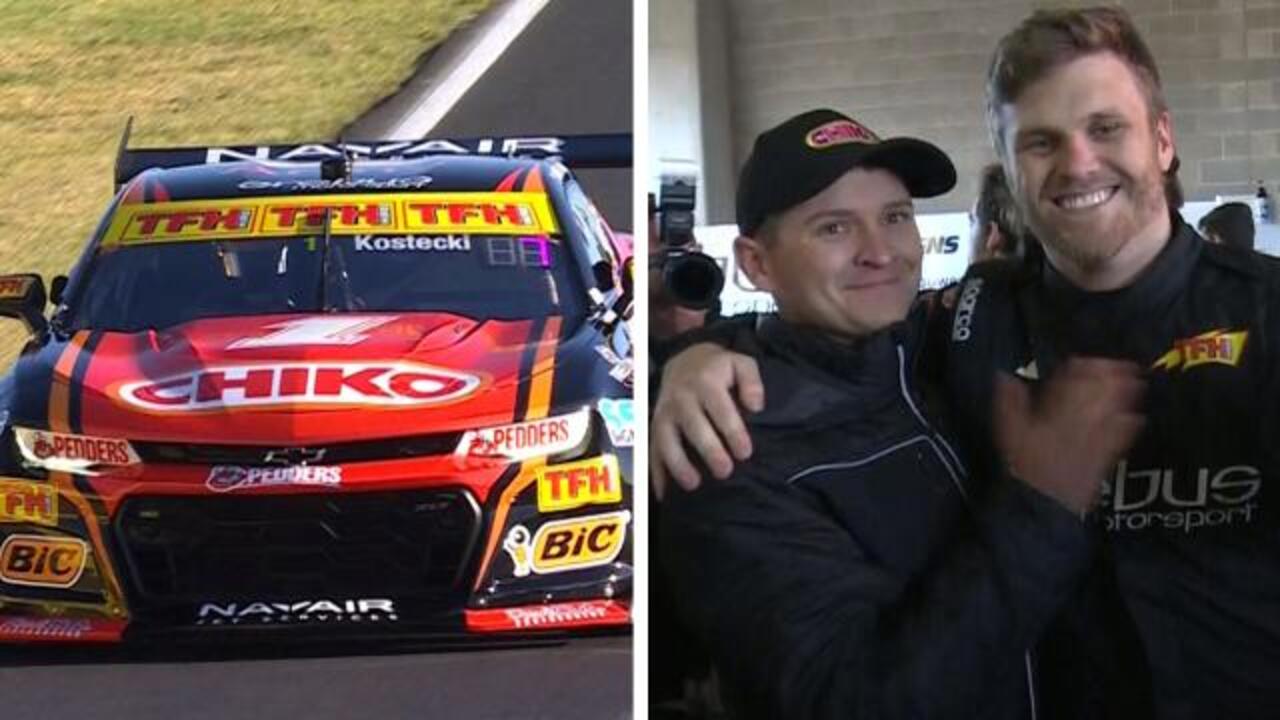
Motorsport
Don't miss out on the headlines from Motorsport. Followed categories will be added to My News.
Supercars great Mark Skaife describes it as a “high-speed chess game”.
Strategy is much talked about in motorsport and at an endurance race like the Bathurst 1000 it isn’t just important, it’s “imperative” according to the five-time Supercars champion.
This year, there is a significant regulation change set to shake up the Bathurst chess game with the ruling that only primary drivers can start the race.
Skaife said the change had the potential to have a big impact on team strategy, but believed it would change the race “for the better”.
“When Australians turn their TV on they want to see the best drivers race at the start of Australia’s biggest race,” Skaife said.
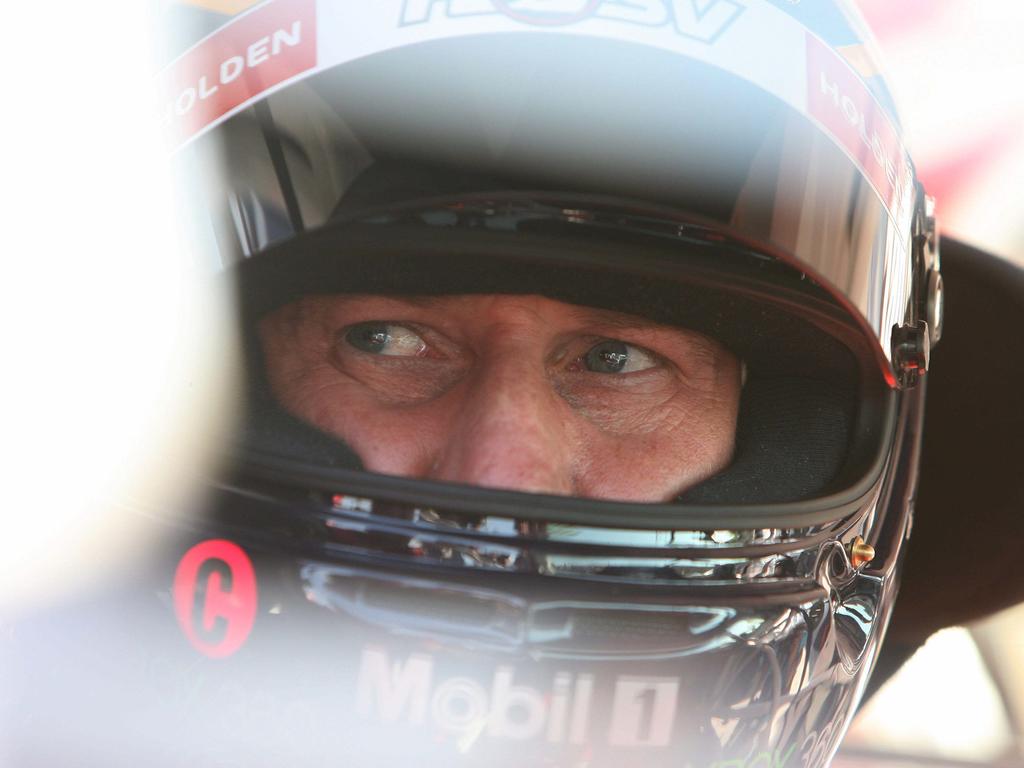
“I actually like it, I think it’s a really good thing. The only people that complained about it were the co-drivers who were going to get a gain against the other co-drivers.
“For the teams that had what I would call an A-grade co-driver that was going to start the race and …. get a gain over those other co-drivers, that just took that away in that first part.
“It hasn’t taken it away for the day because they still get to race against the co-drivers at some stage.
“What it does, it puts the co-driver further into the race before you can get all of their laps done. Normally you will try to have all of their laps done by about lap 80, but under this scenario you are probably going to be further towards 100, maybe.
“Some teams may choose to not do that by making the first stint of the race slightly shorter and then having a situation by putting the co-driver in early and getting those laps done.”
A six-time winner at Mount Panorama, Skaife said most teams would have a predetermined plan for their Bathurst race strategy with “two or three options around that plan for the six or seven (pit) stops”.
Putting his race engineer’s hat on, Skaife said his first priority for a strong strategy would be to let the heat come out of the race before injecting the co-driver into the battle.
“My plan A winning strategy is probably to ensure that when I start my lead driver that I let the heat come out of the race,” Skaife said.
“So start my lead driver and run that driver as long as I can to basically get a full fuel load and do a proper stop. If the safety car comes out before that then take it and put the co-driver in.
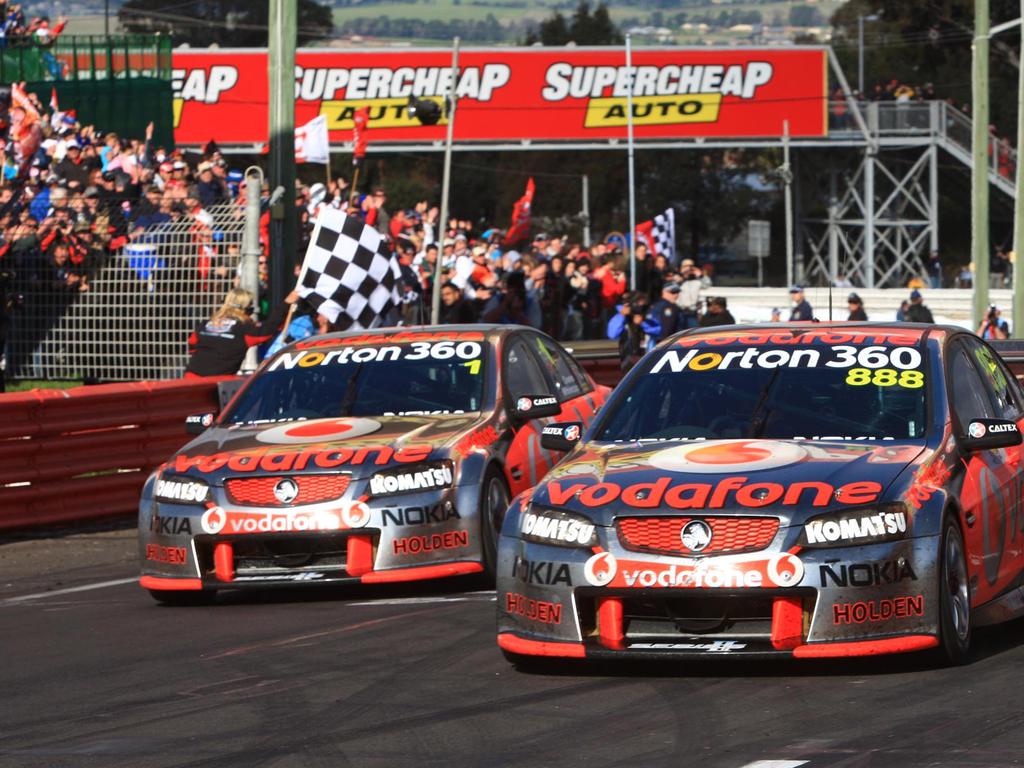
“So the two hectic parts are obviously the start and then the finish. If you get to a point in the race, let’s call it 25 laps through to let’s say 75, the heat is pretty low …. although you’re still driving hard, it doesn’t tend to have the same level of action.
“And probably right up to about lap 100, so in that phase you want the co-driver to be in there and you want the co-driver to have as much clear air to not get caught in traffic.
this is where pit lane position has a big factor and it plays a big role in what gets determined.
“When your car comes in .... you basically fuel to the competition and keep your car in front to ensure that you just don’t get caught up.
“If you can give the co-driver a stint or two stints where it’s relatively calm that will make a massive difference because it keeps you in play and you don’t end up with a mistake.”
For the cars that qualified further towards the back of the grid, Skaife said they needed to create an alternate strategy to mix things up and keep their rivals guessing.
“You’ve got to apply a divergent strategy if you are further back in the field to not get caught up in all the early crowded issues,” Skaife said.
“Stop early and get out. Get out of the train …. when you do something different it makes the rest have a bit of a head scratch and they continue to monitor you, but it is hard for them to ascertain what your real performance is like when you are on a different strategy.
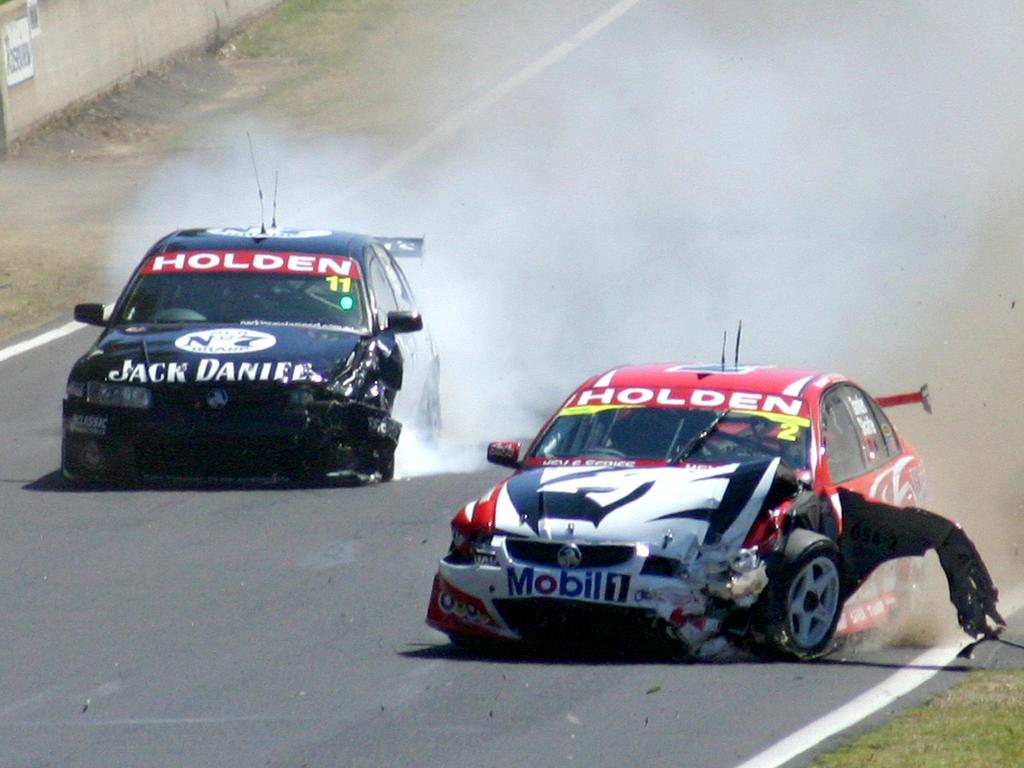
“At some point, they level up. At some point .... there will be a safety car that comes out and everyone lines up.
“Now all of sudden, instead of being 24th, you’re fifth and you’re back in it. The whole plan is to create a divergent strategy that gives you a clear track, optimises your pace so you don’t get held up and then later in the day it will come back to you.”
Of course, there are always curve balls during the race.
Safety cars, weather, crashes and car and track evolution - and even wildlife.
Skaife said this is when the team’s engineering and technical staff earned their money by switching up strategy on the run.
“What happens is all the variables get you,” Skaife said.
“Which is why I always say this is the ultimate game of thinking on your feet.
“There are curve balls everywhere, we have seen echidnas on the track, kangaroos on the track, we have seen dogs crossing the road, we have seen wheels off cars hit other cars, we’ve just seen so much craziness and then there is the weather factor.

“If it does look like it’s going to be wet you have to make really good educated decisions as to how the car is because if it’s seriously wet and you’ve got a car that is set up for the wet, you will look like an absolute hero.
“But it can be the opposite way too. Iff it doesn’t end up as wet as you think, the conditions aren’t as slippery as you thought and it ends up drying up then you are absolute zero.”
Originally published as Skaife: How to unlock the ‘high speed chess game’ of Bathurst


